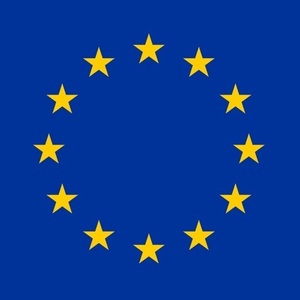EU charges 2 producers over ethanol benchmarks cartel

July 8, 2022
BY Erin Krueger
The European Commission on July 7 announced charges against Belgium-based Alcogroup SA, and Sweden-based Lantmännen ek för, along with their relevant subsidiaries, over alleged ethanol benchmarks cartel.
The Commission in December 2015 announced the opening of a formal antitrust investigation to determine whether or not three ethanol producers had manipulated ethanol benchmarks published by a price reporting agency, which is a breach of European Union antitrust rules. The three companies included Alcogroup, Lantmännen, and Spain-based Abengoa. Abengoa in late 2021 admitted to its involvement in the cartel and agreed to settle the case for EUR 20 million ($20.52 million).
Advertisement
Advertisement
Alcogroup and Agroetanol decided not to settle the cartel case with the Commission. As a result, the Commission's investigation against the two companies is being carried out under the standard cartel procedure.
“Today's Statement of Objections sets out our preliminary concerns that Alcogroup and Agroetanol, together with Abengoa, may have colluded in the past to influence price benchmarks for ethanol,” said Executive Vice-President Margrethe Vestager, in charge of competition policy. “This is illegal under our competition rules. We are concerned that the companies' conduct harmed competition in the market for the supply of biofuels, which contribute to the reduction of greenhouse gas emissions. With artificially inflated biofuel prices, Green Deal objectives are also undermined.”
Advertisement
Advertisement
According to the Commission, the port of Rotterdam and the Amsterdam-Rotterdam-Antwerp barge market are the most important trading locations for ethanol in Europe. The Commission explained that S&P Global Platts, a price reporting agency that provides assessments for different commodity markets, including ethanol, takes the trading activity in this area into account for establishing its ethanol benchmarks, which are used as reference prices in the industry. To set its ethanol benchmarks, Platts uses a price assessment process called “Market on Close” (MOC). This process is based primarily on information (e.g. bids, offers and trades) collected from market participants during the day and, in particular, during the time interval between 16:00 and 16:30 London time, which is known as the “MOC Window.”
The Commission said that it preliminarily found that the three ethanol producers coordinated their trading conduct in the MOU Window and agreed to limit the volumes of ethanol in the Rotterdam area so that they would not be sold in the MOC Window, in line with their plan to artificially increase, maintain and/or prevent from decreasing the level of Platts’ ethanol benchmarks. The commission also preliminarily found that traders from the three companies had illegal contact with each other in the form of instant messaging or email.
Additional Information is available on the European Commission website.
Related Stories
The U.S. Energy Information Administration maintained its forecast for 2025 and 2026 biodiesel, renewable diesel and sustainable aviation fuel (SAF) production in its latest Short-Term Energy Outlook, released July 8.
XCF Global Inc. on July 10 shared its strategic plan to invest close to $1 billion in developing a network of SAF production facilities, expanding its U.S. footprint, and advancing its international growth strategy.
U.S. fuel ethanol capacity fell slightly in April, while biodiesel and renewable diesel capacity held steady, according to data released by the U.S. EIA on June 30. Feedstock consumption was down when compared to the previous month.
XCF Global Inc. on July 8 provided a production update on its flagship New Rise Reno facility, underscoring that the plant has successfully produced SAF, renewable diesel, and renewable naphtha during its initial ramp-up.
The U.S. EPA on July 8 hosted virtual public hearing to gather input on the agency’s recently released proposed rule to set 2026 and 2027 RFS RVOs. Members of the biofuel industry were among those to offer testimony during the event.
Upcoming Events










